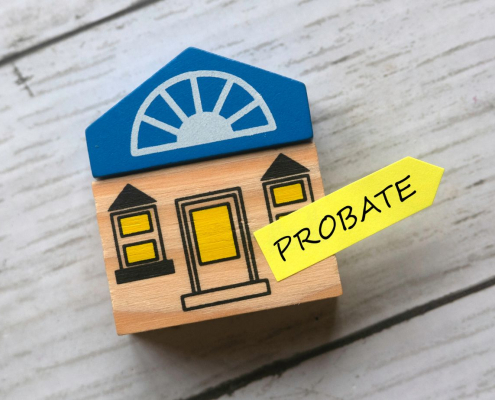A Revocable Living Trust is one of the most misunderstood tools of estate planning, especially since many people associate trusts with the extremely wealthy and the term “trust funds.” But Revocable Living Trusts are necessary for anyone with a piece of real property in California. They are also necessary to address protections for minor children, incapacity, and predators who may seek to take the inheritance from your beneficiaries.
The only types of assets that must go through a prolonged probate process in California are solely-held assets—this means anything that is owned by one individual without any beneficiaries. When a Revocable Living Trust is created, the trust maker (Settlor) transfers their assets into the trust, which is then controlled by a Trustee. In almost every case, the Settlor also serves as the Trustee, meaning the only thing that really changes with their assets is how they’re titled. When that person passes away, their assets do not have to go through probate because those assets are owned by the trust.
Avoiding probate saves your loved ones the hassle and cost of a long probate process and affords privacy for your final affairs. An estate planning and elder law attorney can help assess your situation and advise you on whether or not a Revocable Living Trust would be best for you. If you are curious what probate would cost your estate, visit Copenbarger.com and use our probate calculator. This is the cost that a revocable trust will help you avoid.
As noted above, the Settlor typically serves as the Trustee of their own Revocable Living Trust. However, Successor Trustees are named to take over the Trust in the event of the original Trustee’s death, incapacitation, or if they would just rather have someone else handle their financial affairs. A Successor Trustee would then have control over all the assets held in the Revocable Living Trust and could make decisions on the Settlor’s behalf. This situation could also help avoid a court conservatorship, where a person is appointed by the court to handle the conserved person’s financial affairs.
However, if the Settlor has any solely-owned property outside of the Revocable Living Trust, then a Power of Attorney may be needed to handle financial matters while the Settlor is still alive, or a probate estate must be opened in the event of the Settlor’s death. You can speak with an attorney if you have any questions about how a Successor Trustee can work with your Revocable Living Trust.
If you would like to learn more about planning to avoid probate with a Revocable Living Trust, or if you’d like to discuss your current estate plan, please set up an appointment at our one of our offices located throughout California at 800-244-8814.
 https://www.copenbarger.com/wp-content/uploads/2023/05/Probate.jpg
924
1640
Valerie Guerrero
https://www.copenbarger.com/wp-content/uploads/2019/07/copenbarger-attorney-logo.jpg
Valerie Guerrero2023-05-11 08:38:092023-05-11 08:38:09Probate vs. Non-Probate Property in California – Do You Know the Difference?
https://www.copenbarger.com/wp-content/uploads/2023/05/Probate.jpg
924
1640
Valerie Guerrero
https://www.copenbarger.com/wp-content/uploads/2019/07/copenbarger-attorney-logo.jpg
Valerie Guerrero2023-05-11 08:38:092023-05-11 08:38:09Probate vs. Non-Probate Property in California – Do You Know the Difference?



